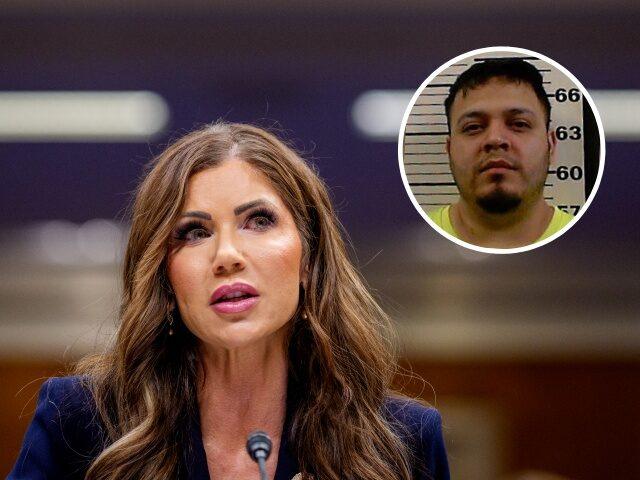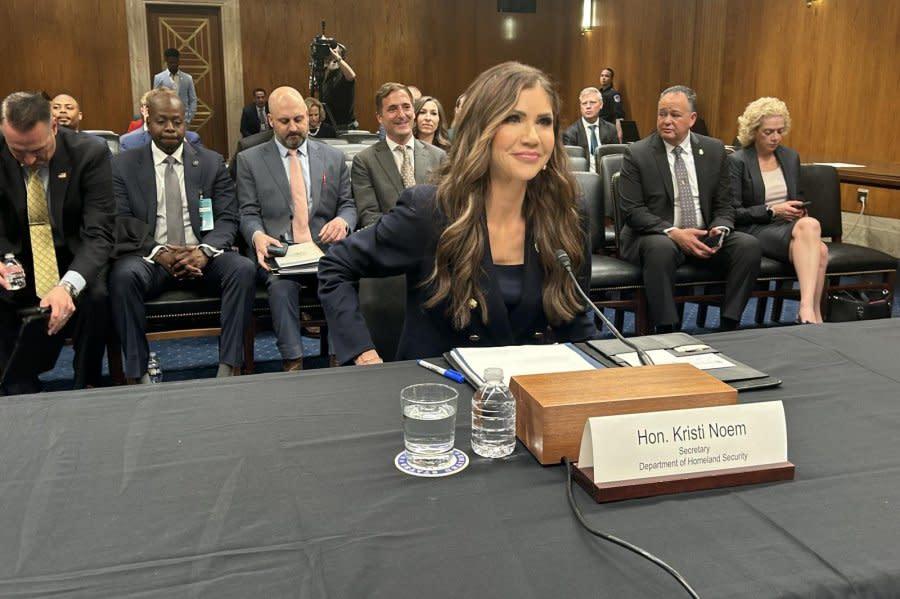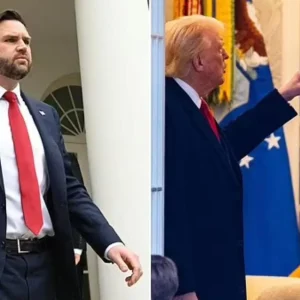DHS Secretary Kristi Noem Asserts Deported MS-13 Gang Member Kilmar Abrego Garcia Will Not Be Allowed to Return to the U.S.

Department of Homeland Security (DHS) Secretary Kristi Noem has made it abundantly clear to Senate Democrats that there is “no scenario” in which Kilmar Abrego Garcia, a deported illegal immigrant with alleged ties to the MS-13 gang, will be allowed to return to the United States. Garcia, who has been accused of a string of serious criminal activities including domestic abuse and human smuggling, has become the center of a heated debate about immigration enforcement and the safety of American citizens.

Garcia’s case has drawn national attention, particularly because of the troubling nature of his criminal history. As an alleged member of the notorious MS-13 gang, known for its violent activities, Garcia’s actions have raised alarm bells regarding the threat posed by individuals involved in such organizations. In addition to his suspected gang affiliation, Garcia faces accusations of domestic violence, further compounding the concerns about his potential return to the U.S. His involvement in human smuggling also adds another layer of complexity to his case, highlighting the broader issue of illegal immigration and its associated risks to national security.

Despite some calls from certain lawmakers and advocacy groups for his return, Secretary Noem has firmly rejected any possibility of Garcia re-entering the United States. In her statement, she emphasized that the U.S. government will not tolerate the return of individuals who have been deported after engaging in criminal behavior. She reinforced that Garcia’s alleged actions not only violate U.S. law but also present a significant threat to public safety and national security.
Secretary Noem’s position aligns with the broader stance of the current administration, which has prioritized strong immigration enforcement as part of its efforts to protect American citizens from criminal elements. The deportation of individuals like Garcia is viewed as a critical step in safeguarding the nation from dangerous individuals who might seek to exploit U.S. borders for illegal activities, including gang violence and human trafficking.
The case also highlights the challenges the U.S. faces in managing its immigration system. While many individuals who enter the country unlawfully are seeking better opportunities or fleeing dangerous situations, others, like Garcia, exploit the system for nefarious purposes. This duality complicates the task of immigration authorities, who must balance compassion for vulnerable individuals with the need to protect the public from those who pose a threat.
Garcia’s deportation and the ongoing discussions surrounding his case underscore the delicate balance that must be struck in immigration policy. While the U.S. remains committed to providing refuge to those in need, it is also clear that individuals who engage in criminal behavior, especially those affiliated with violent gangs or involved in human trafficking, will not be welcomed back into the country. The firm stance taken by Secretary Noem is a clear message that the safety and security of the American people will always be a top priority, and that deported criminals will face significant consequences if they attempt to return.
As the debate over immigration reform continues, Garcia’s case serves as a reminder of the ongoing challenges the U.S. faces in managing immigration, while also protecting its citizens from individuals who seek to do harm.






